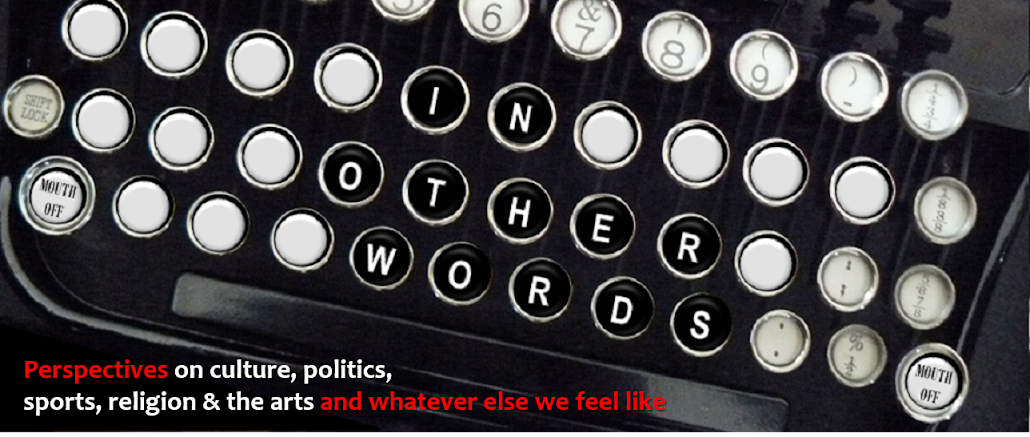By Mitchell
My friend Badda-Blogger drew my attention to a fascinating discussion over at one of his sister blogs, Anti-Strib. (For those of you not from Minnesota, this is a site dedicated to, shall we say, fact-checking the infamous Star Tribune.) One of their contributors, Ed (the token liberal, which shows that conservatives often have a healthier idea of diversity than liberals) has been on something of a quest lately to disprove the existence of God. (I may be simplifying this, and I don't mean any offense.)
In his latest piece, Ed reminds us of the existence of the Jefferson Bible, in making the point that most of the Founders were not Christians, and that therefore it is naive of us to suggest that they intended Judeo-Christian thinking to be incorporated into the founding of the nation.
Badda knows that I’m something of a buff when it comes to the Founders, so he thought I’d be interested in the discussion. Herewith my contribution to the combox - I'm sharing this with you in the hopes that you all can contribute further thought to the discussion in general, if not this aspect in particular. (A warning: Anti-Strib is, to say the least, colorful; for that reason, I don't generally link to it. However, I think their hearts are (mostly) in the right place, and I also think this is a discussion that should be engaged, in as high a level as we can make it.)
So, [I said] Ed does make some very interesting and useful observations in this piece. However, I’m not sure what the ultimate point is. I think it’s fairly common knowledge that a number (if not many) of the Founding Fathers, Jefferson and Franklin among them, were Deists. (About Washington we’re less certain; there’s a school of thought that Washington’s faith went beyond the passivity that’s usually associated with Deism.) And while it’s true that Jefferson wasn’t a Christian, it is another thing to ask whether or not he was a believer and answer in the negative.
I’d like to shift the discussion to Franklin on this point for a couple of reasons. First, I know a bit more about him. Second, Franklin is, in my opinion, the more interesting, the more brilliant of the two, as well as (arguably) the more significant in the early history of America. And I think that in looking at the Founders’ relationship with organized religion, Franklin is also the more illuminating.
Franklin biographer H.W. Brands recounts a story in which Ezra Stiles of Connecticut asked the elderly Franklin about his religious convictions, in response to which Franklin penned what he called his creed. "I believe in one God, creator of the universe. That He governs it by His providence. That He ought to be worshiped. . . . That the soul of man is immortal, and will be treated with justice in another life respecting its conduct in this." As for Jesus, "his system of morals and his religion [are] the best the world ever saw or is likely to see. . . . I have, with most of the present Dissenters in England, some doubts as to his divinity; though it is a question I do not dogmatize upon, having never studied it, and think it needless to busy myself with it now, when I expect soon an opportunity of knowing the truth with less trouble."
As further evidence of Franklin’s complex relationship with religion, Brands relates the story of Franklin’s motion to open each daily session of the Continental Congress with prayer. In support, Franklin cited the biblical text, "Except the Lord build the house, they labor in vain that build it," and added, "I firmly believe this." Without God’s aid, "Our projects will be confounded, and we ourselves shall become a reproach and a by-word to future ages."
So neither Franklin nor Jefferson were what we would think of as Christians. (Of course, on that score it doesn’t really matter what we think; the opinion of the Higher Authority outranks us.) However I would contend, IMHO, that Franklin in particular could be called a believer. Not a believer in Christ per se, in the sense that he did not see him as the Divine Son, but certainly a believer in a Creator. And, with all due respect to Ed, who I think has added a rich dimension to the level of diversity in the site, I do think that this respect, combined with the intellectual thought to which Franklin gave the topic of religion, suggests that Judeo-Christian thinking does in fact appear in the founding documents and mores of this country.
Any thoughts on the Founders, out there? Feel free to leap into the Anti-Strib discussion. (Especially you, Cathy. . .)
Cross-posted to Stella Borealis Catholic Roundtable

No comments:
Post a Comment
Remember: Think Before Commenting.